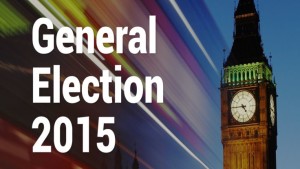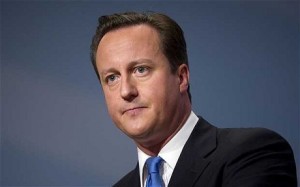UK Election 2015 Overview
 As Britain enters its elections, there are many questions regarding who the primary candidates for PM are, what parties and platforms they represent, and what their promises to the electorate of the UK are. This election promises to be one of the most crucial in years, and smaller parties seem to be positioned to play an important role. In this brief article, we will cover the major party leaders involved, as well as the policies they intend to pursue if elected.
As Britain enters its elections, there are many questions regarding who the primary candidates for PM are, what parties and platforms they represent, and what their promises to the electorate of the UK are. This election promises to be one of the most crucial in years, and smaller parties seem to be positioned to play an important role. In this brief article, we will cover the major party leaders involved, as well as the policies they intend to pursue if elected.
 onal minimum wage, Miliband seeks to stimulate growth within the British economy by increasing consumer spending. He has also set forth plans to allow for a liberal immigration policy, arguing that immigrants have much to offer to the British workforce. With regards to the question of continued membership in the European Union, he has spoken out strongly against Britain’s withdrawal, on the grounds that it would damage businesses that export their products and services primarily into the wider European market. While Miliband has tried to paint both himself and the Labour party as a populist option in this election, going so far as to arrange for droves of door to door campaigners to speak one on one with constituents, he has drawn criticism for several of his campaign tactics. In particular, the recent unveiling of an 8 foot limestone tablet laser etched with the key points of his platform has been seen as over the top showmanship. If the Labour party is forced to form a multiple party coalition government in order to hold Parliamentary majority, it is likely that Miliband will have to moderate some of his positions.
onal minimum wage, Miliband seeks to stimulate growth within the British economy by increasing consumer spending. He has also set forth plans to allow for a liberal immigration policy, arguing that immigrants have much to offer to the British workforce. With regards to the question of continued membership in the European Union, he has spoken out strongly against Britain’s withdrawal, on the grounds that it would damage businesses that export their products and services primarily into the wider European market. While Miliband has tried to paint both himself and the Labour party as a populist option in this election, going so far as to arrange for droves of door to door campaigners to speak one on one with constituents, he has drawn criticism for several of his campaign tactics. In particular, the recent unveiling of an 8 foot limestone tablet laser etched with the key points of his platform has been seen as over the top showmanship. If the Labour party is forced to form a multiple party coalition government in order to hold Parliamentary majority, it is likely that Miliband will have to moderate some of his positions.
Nick Clegg, current Deputy PM and leader of the Liberal Democrats, while not a likely candidate for PM, is still a very important figure in today’s election. As Britain’s third largest party, the Liberal Democrats are traditionally the party that must be co-opted in order to form a coalition government. This gives Clegg, as its leader, substantial influence over policy in the event that a single party does not hold an independent majority. Clegg has consistently supported spending cuts across the board, going so far as to state that Cameron has not implemented sufficient austerity measures. Should a coalition government form, it is likely that Clegg and the Liberal Democrats would be more willing to once again ally themselves to the Conservatives.
A late but interesting addition to this field is Nicola Sturgeon and her party, the Scottish National Party. Since the referendum on Scottish independence in 2014, Sturgeon and her party have seen a large surge of popularity amongst Scottish voters. At the moment, the party is positioned to take the majority of Labour seats in Scotland. While this does not make Sturgeon a candidate for PM, it may well give the SNP, traditionally a party with only a handful of seats, a place at the table during the forming of coalitions. Sturgeon’s policy platform includes a reduction or elimination of the British nuclear arsenal, a much more generous welfare system, and an increase in both the minimum wage and public spending. Sturgeon represents a further left platform that largely died off in the mainstream Labour party during the Thatcher reforms. If the Labour party is forced to form a coalition with the SNP in order to hold majority, it is likely that they will be forced to move left, rather than governing from the center. The SNP’s ability to influence policy within a coalition government, however, is entirely dependent upon its performance in the general elections and how many Scottish seats it can win away from Labour.